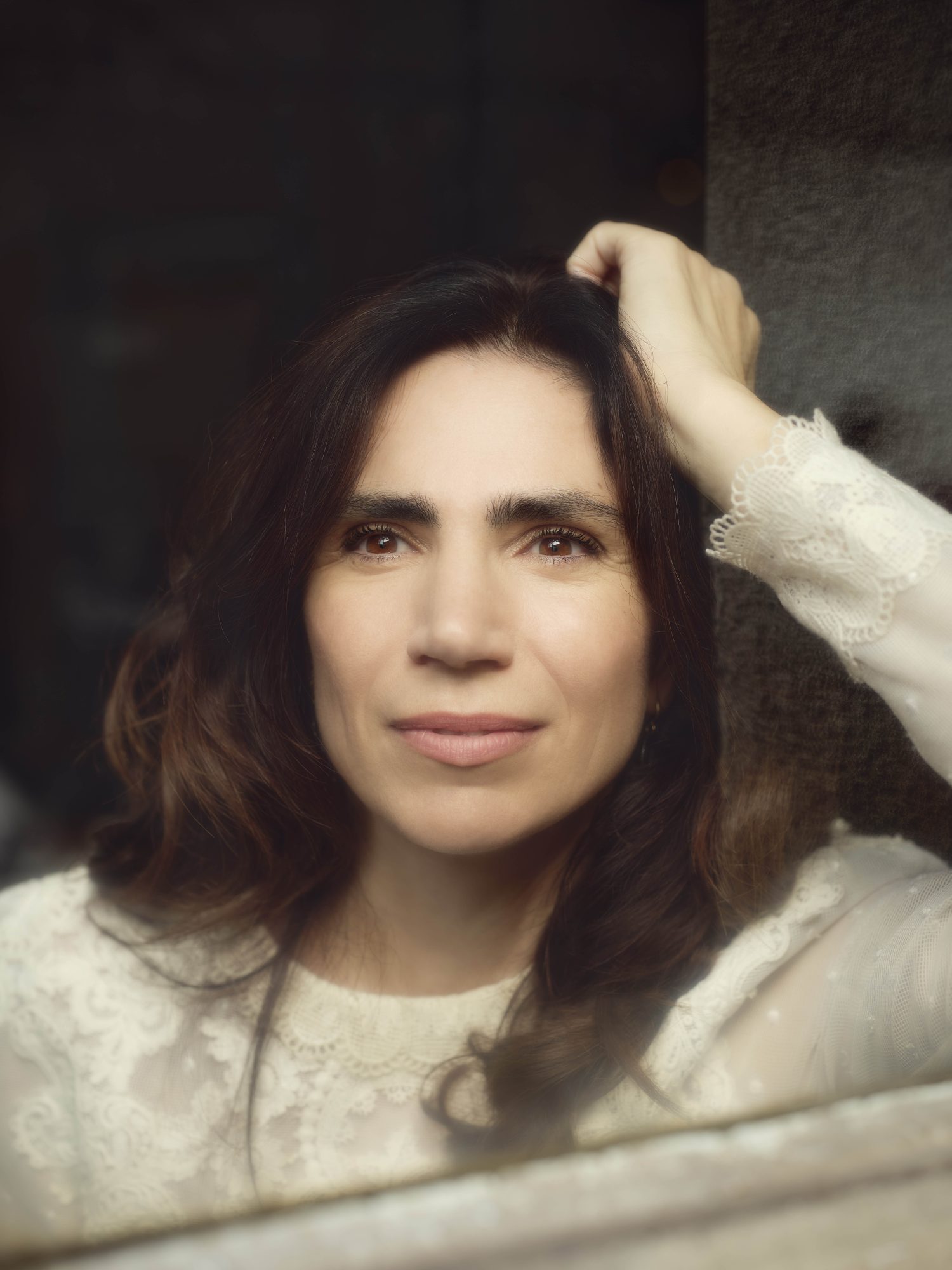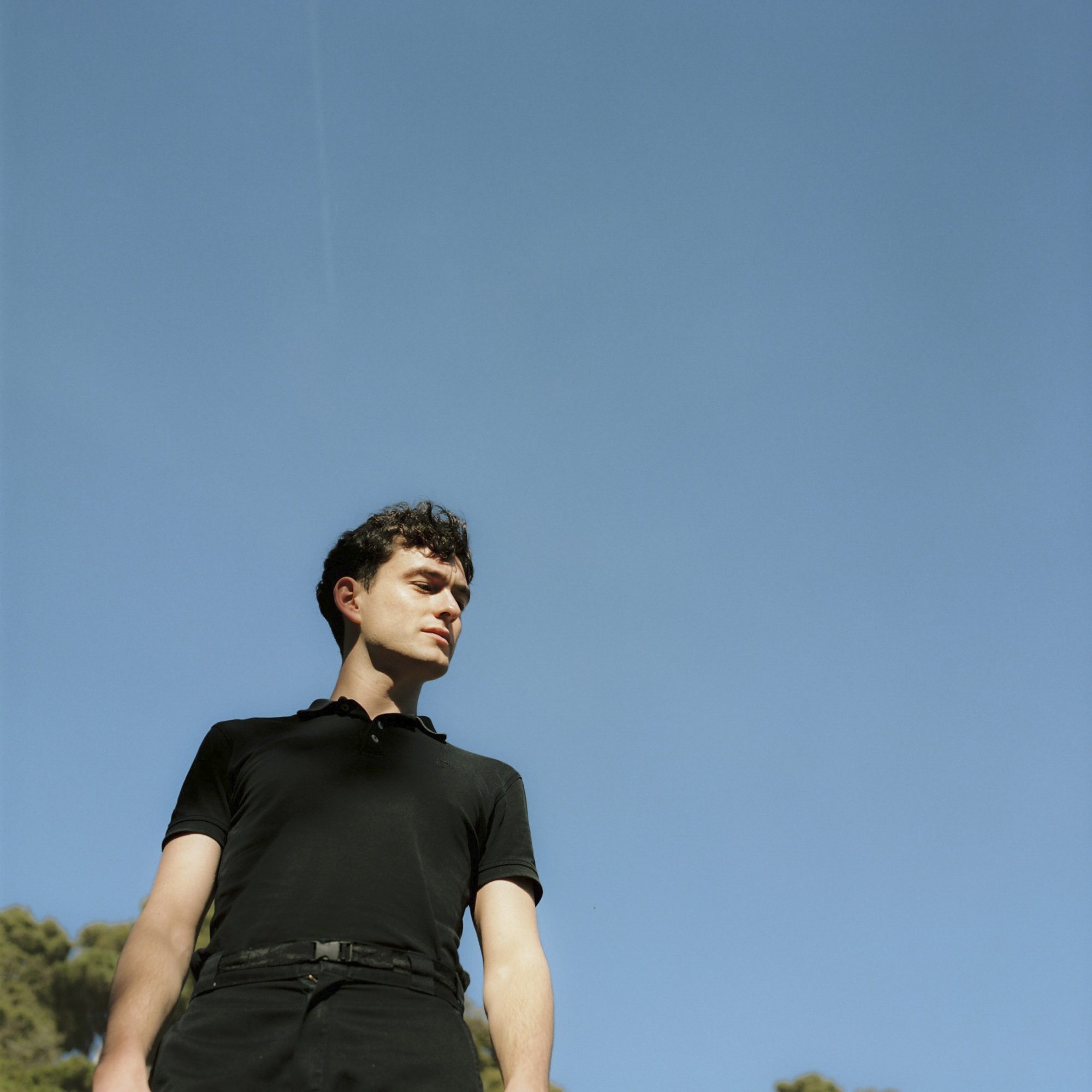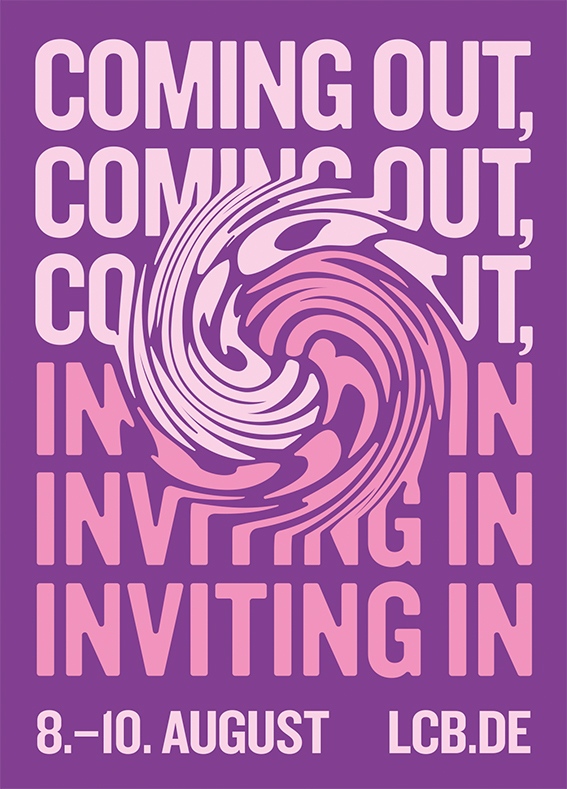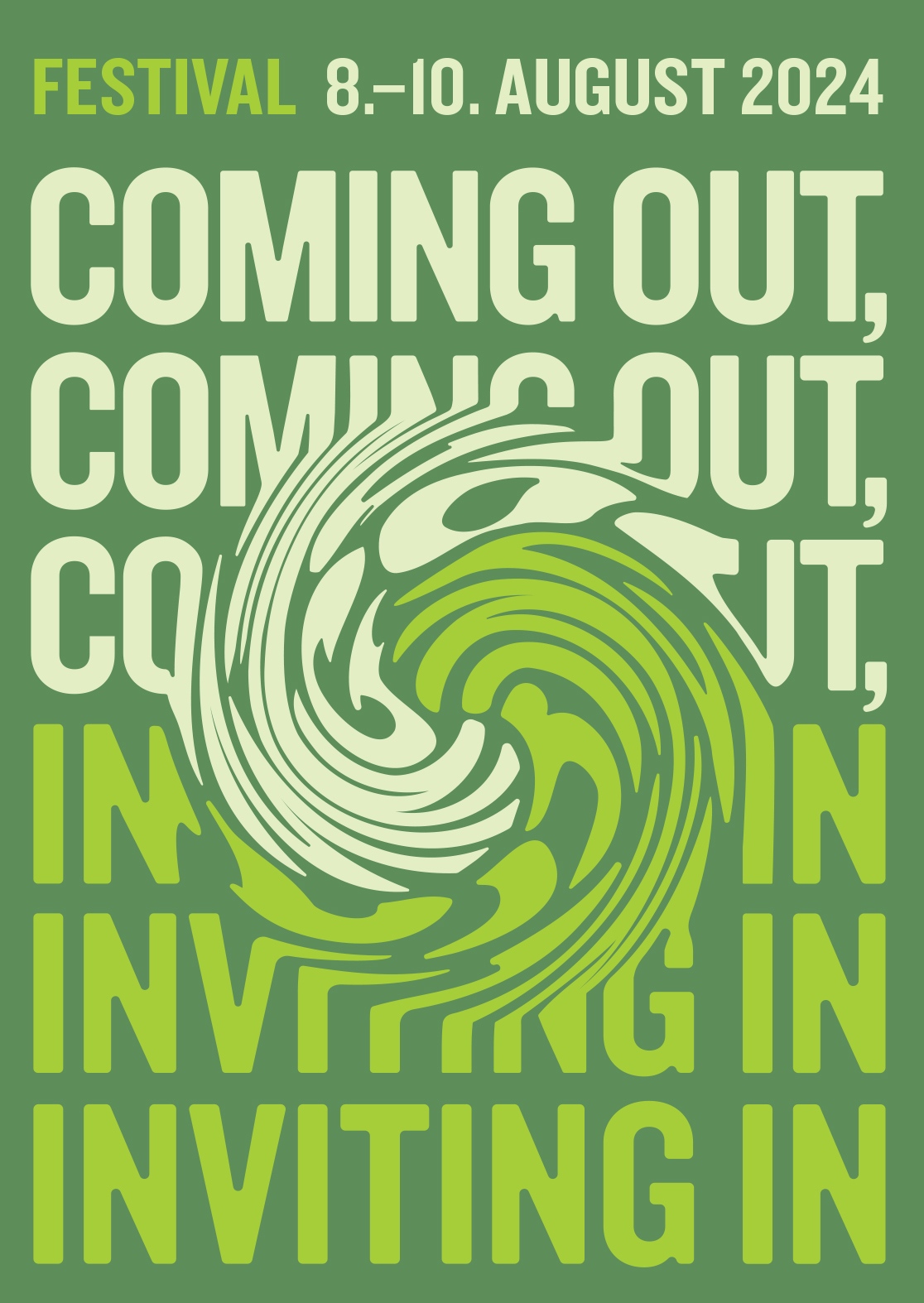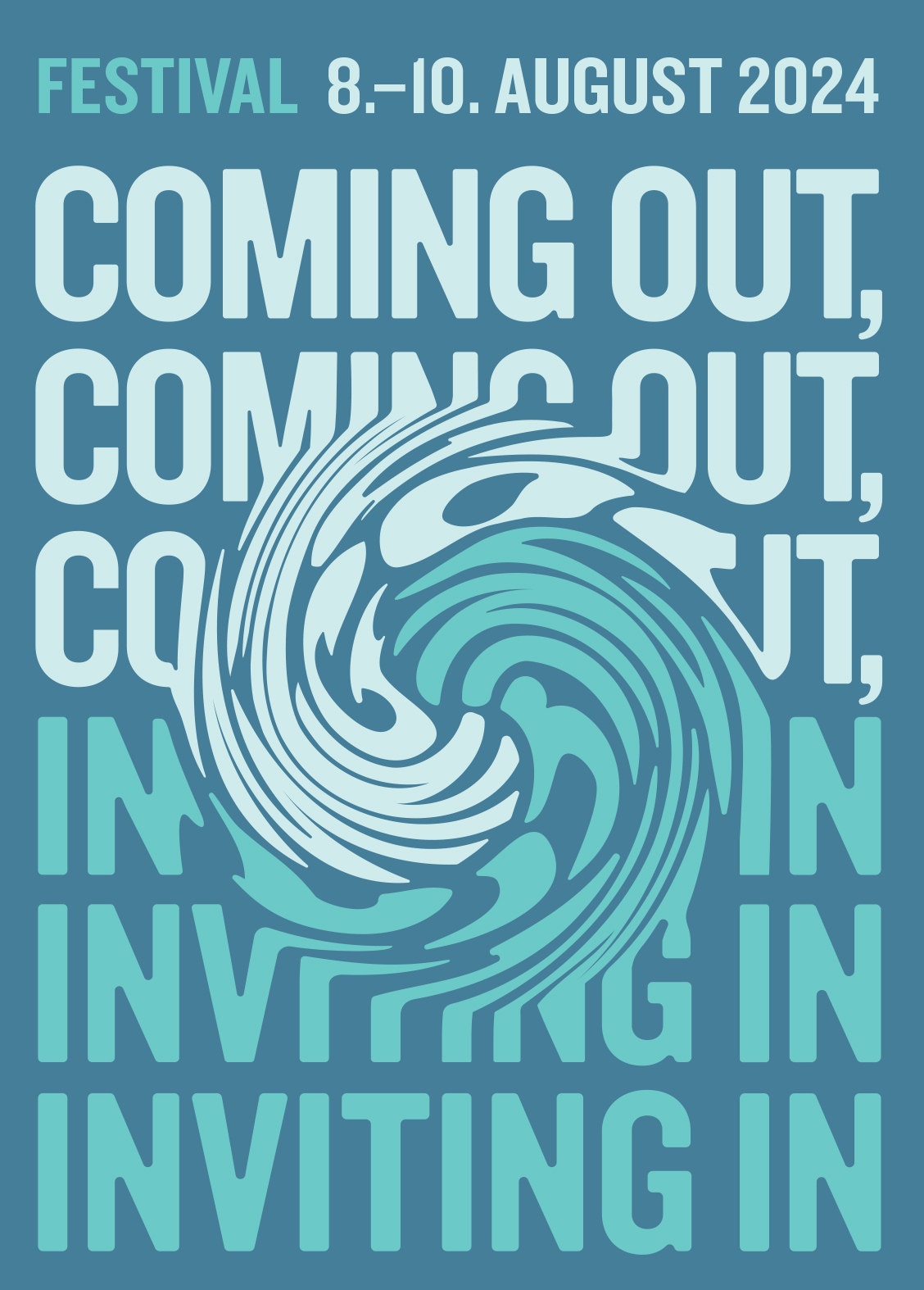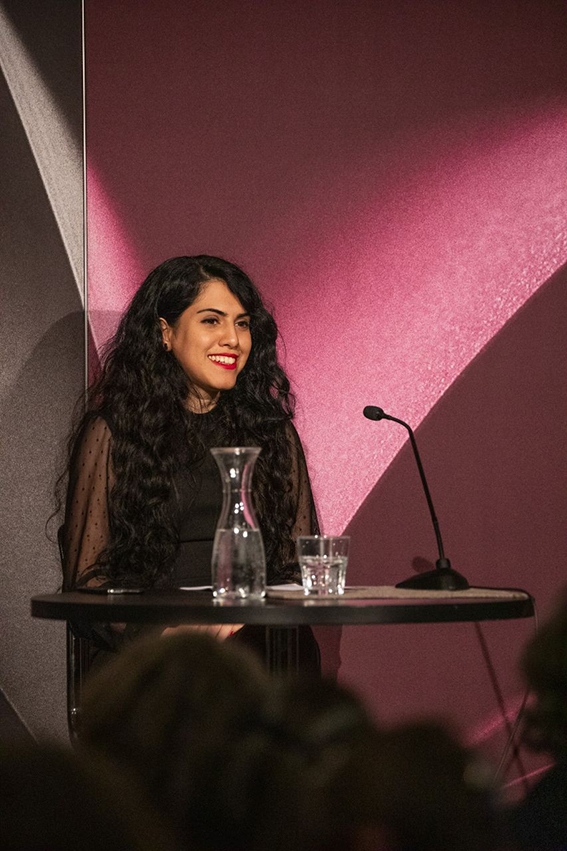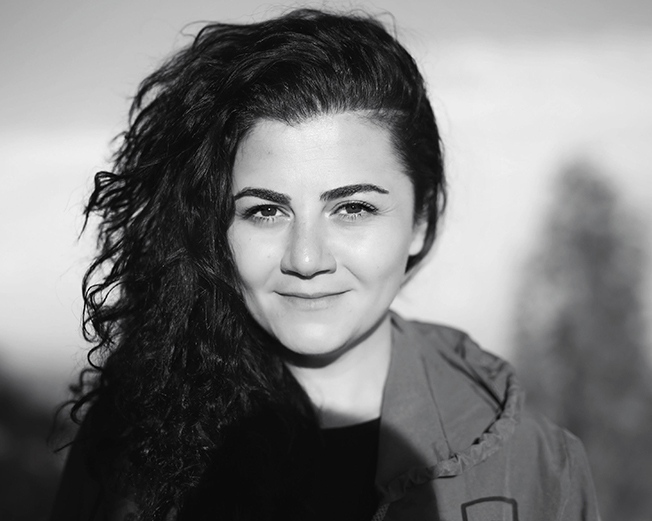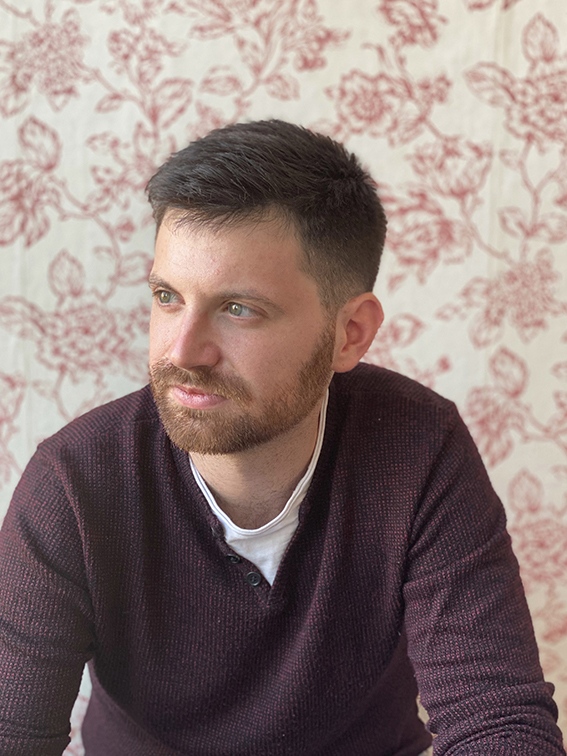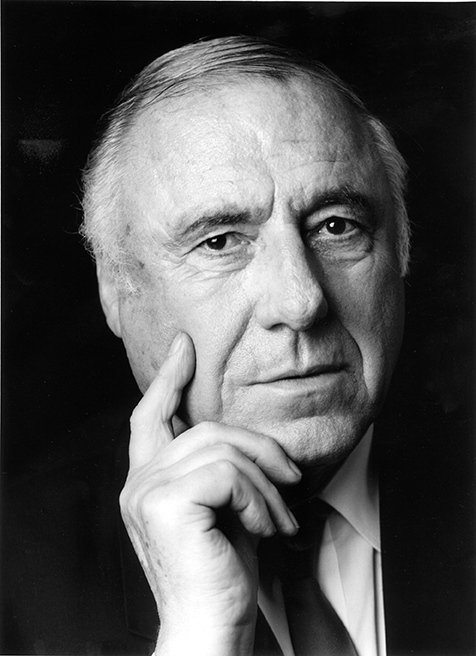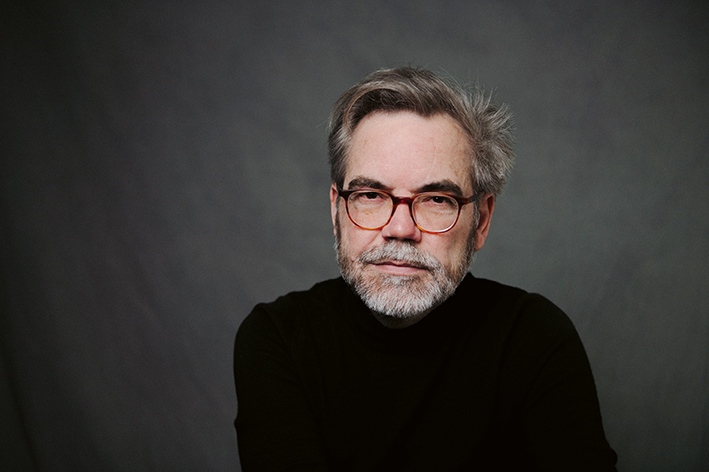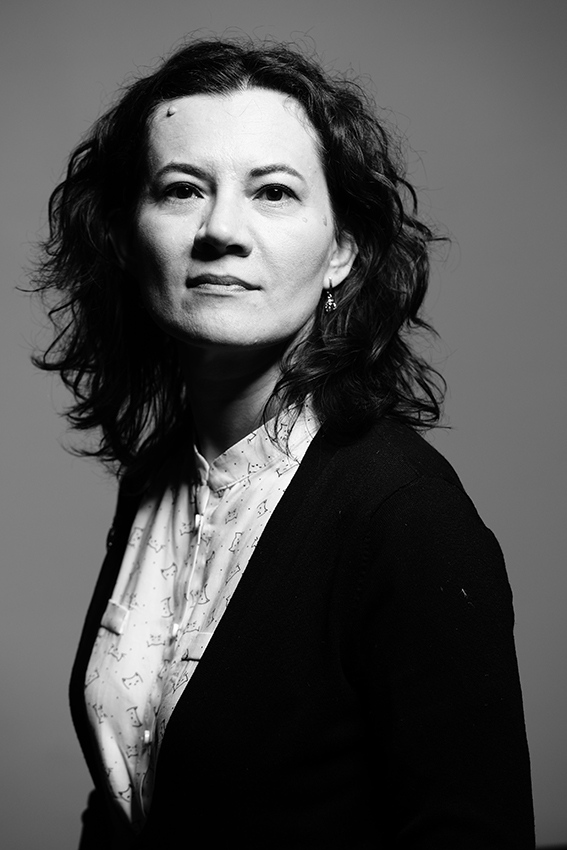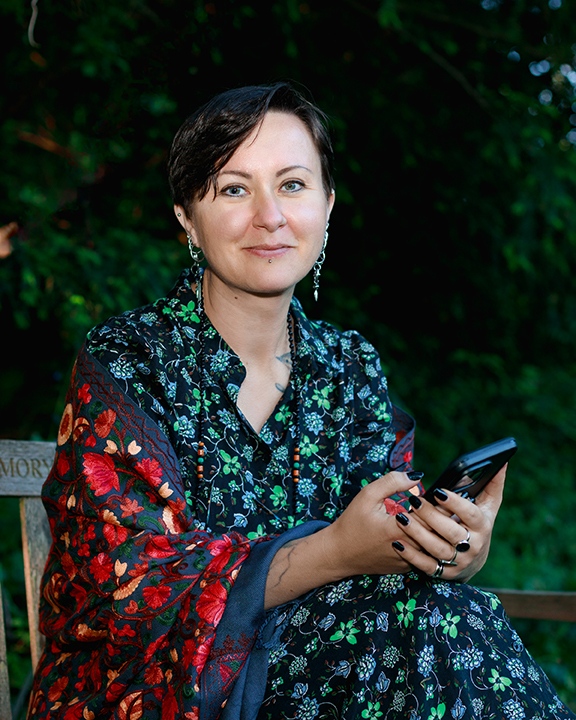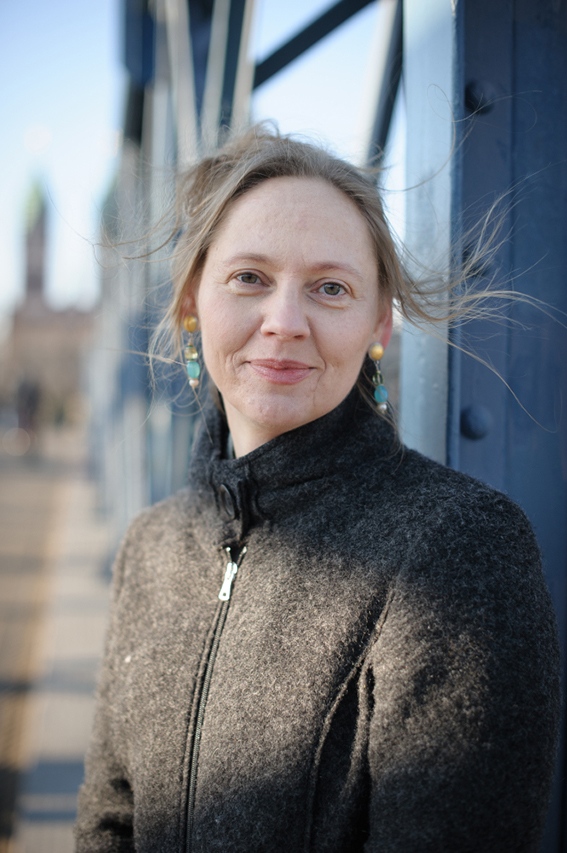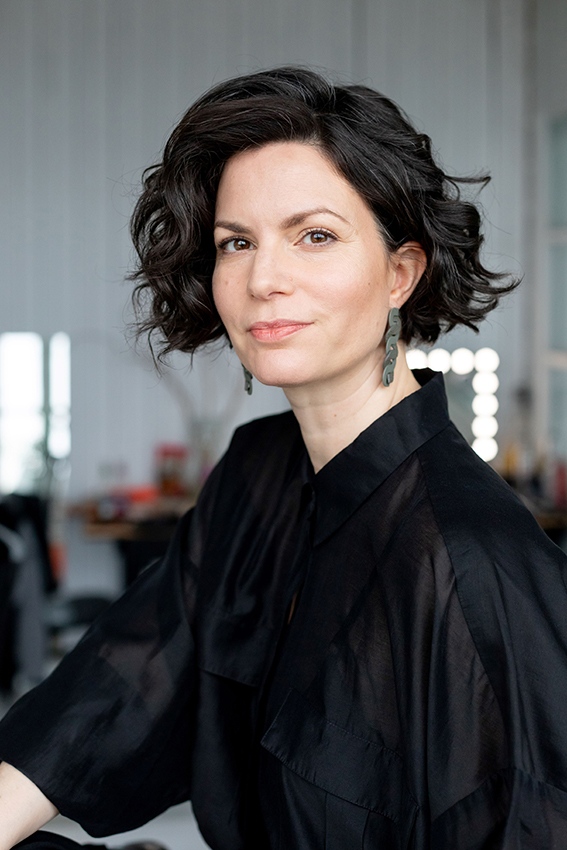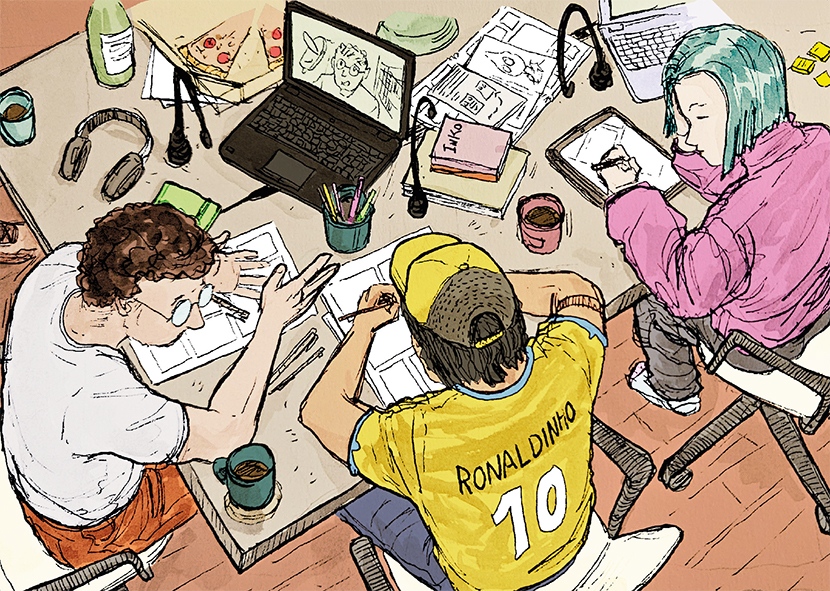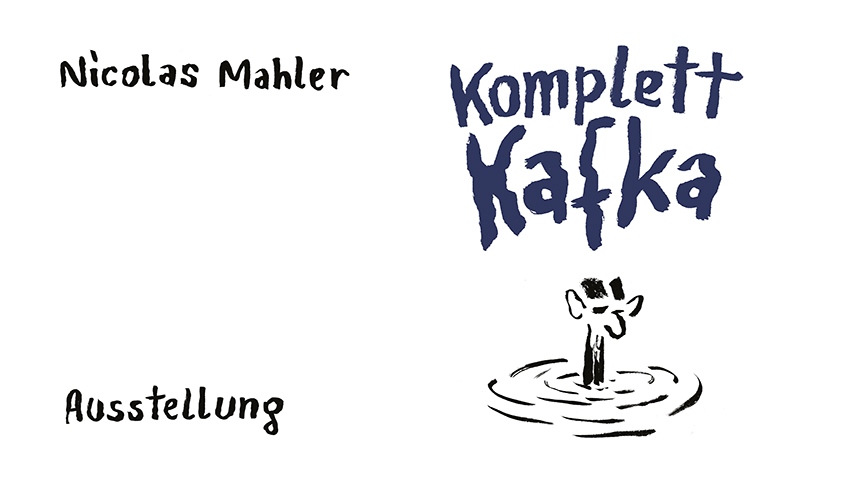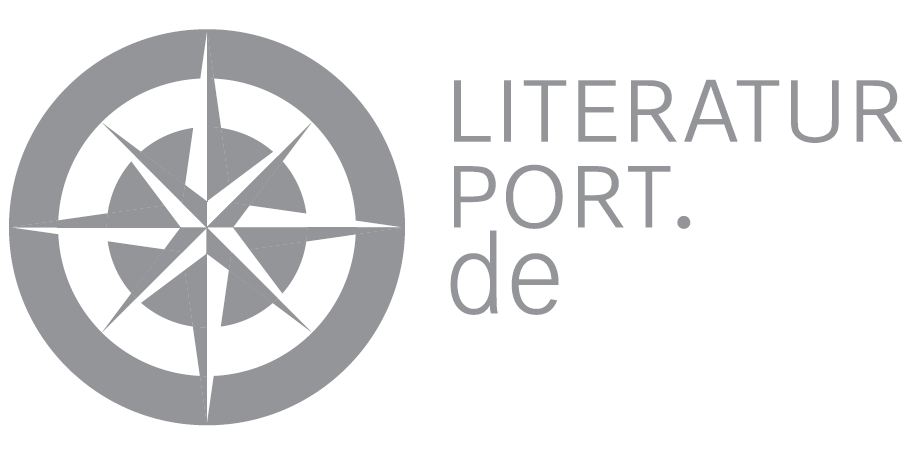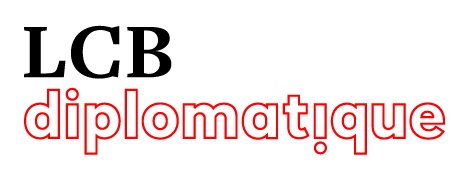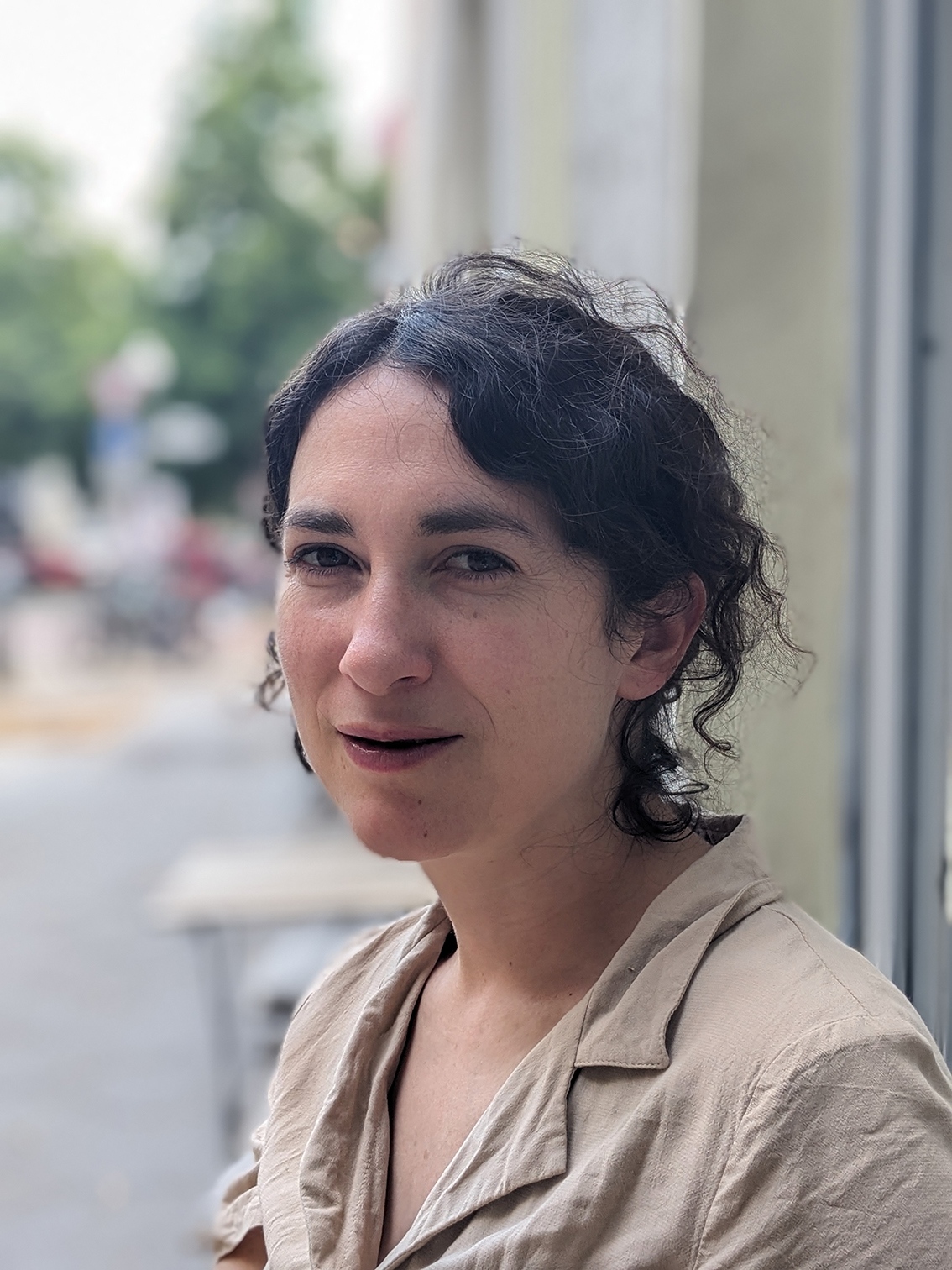Caroline Schmidt: »Dogs with too-long spines are uncomfortable to look at«
Dogs with too-long spines are uncomfortable to look at
Excerpt
Dogs with too-long spines are uncomfortable to look at
Allow me just for a moment to be pathetic: Oh, if only someone else would do this for me! If only I could close my eyes and think about something pleasant and slightly out of focus, like a painting by Pierre Bonnard. A late morning in pastel tones, a breakfast table covered in a checked cloth and bread crumbs, purple shadows drawn across it; there’s a bowl of cherries from the garden so it must be midsummer; a yellow cardigan is draped over a wooden chair lacquered bottle green; there is a dog that reminds of a dachshund but with a shorter spine, since dogs with too-long spines are uncomfortable to look at, and it sits in the doorway with its back to us, its back perfectly proportioned to its body in general and the length of its legs in particular, and it gazes down the hall, waiting for someone. I would wait beside this dog for an eternity, stroking its ears soft as catkins—if the dog was into it—if only that person had left in order to meet you in the next room, where the two of you would sit in plush upholstered armchairs, or any kind of chairs you want, really, and they would explain what occurred, after I arrived at William List’s. If you don’t mind‚ I think I’ll just close my eyes and put my feet up, and picture scenes like this, while someone less involved steps in, and tells you what happened next…
Marthe speaks
Oh, hold on a minute. I was just drawing a bath—no wait, don’t go, I spoke in jest. After all, you must have heard some of the rumors about my washing habits. To think, what is considered scholarship by some. I’m afraid history has not been kind to me. Well, at least I enjoyed my life. I really did, you know. In spite of everything. Yet it still irks me: their continued unwanted observations about my figure, my moods. It’s all too much. “Though she was in her mid-fifties the artist depicts her as a young woman.” Thus spoke the Tate, not all too long ago. What do they know about my figure in my mid-fifties? What do they know about time? It’s true, Pierre could not look at me without seeing some ghost of my former self hovering in front. But it wasn’t a mask—it was more like a key that allowed him to see me in the fourth dimension. And besides, water disguises; in water all gravity is suspended. Even a child knows that. Now there we have it, the problem: children. We never had one. Hence this great obsession with my “health,” my body. Perhaps they want to know if I’m sterile. That word has spines, doesn’t it? Let’s stuff it back into from wherever it came.
I’m afraid this conversation is making me rather warm—shall we go out to the garden? First lend me your arm, I want to slip out of my stockings. It’s such a gorgeous feeling to sit in the soft spring grass with bare legs. We can stretch out in the shadow of the chestnut tree. Human architecture has nothing on this. Do you see its blossoms? Aren’t they opulent? Like flames on an enormous candelabra. Their beauty lasts so long, compared to the beauty of flowers on the ground, since they are way up in the sky, where no one can scrutinize them. Eventually they hang limp like silk socks. And they fall bit by bit, as confetti, and even after they wilt and turn beige they are extraordinary, like decomposed lace. Look over here, my purple lilacs. Although it was early June, the artist depicted them as if it were still May. Come, admire my lilacs. Nearly blue, eh? Now shut your eyes and imagine their smell. Tell me, did your nose wiggle a little bit just now? Pierre and I always play games like this, now that we’re dead.
Oh what a pleasure to finally have someone interested in my story. Where should I begin? My name is Marthe. I was born in 1881, in—let’s just say somewhere south of Paris. What was that? Oh. You don’t want to hear about me. You want to know about…her? But she’s just like anyone else. Yes, of course I know what happened—I’m dead, I know everything. After death, what’s left to know? Well okay. What’s her name again? Agnes? Oh, alright. I suppose I’ve got nothing better to do. It’s a shame though; I was going to tell you about Monsieur Renard. Don’t mind me. I’ll just lie doggo among the blades of grass, playing proxy. But before I do, come, admire my lilacs…
Change of heart
Marthe has declined to tell my story, after all. She complained of a headache and a cramp in her calf, and asked me to leave her kitchen. This was after she accused me of lacking autonomy. “The whole construction is rather giddy, don’t you think?” she said. “Stop being so giddy—and use your own voice. By that I mean the same voice you were using before.” Not to mention, it started to rain outside and, although Marthe does not mind getting wet, when it rains her entire garden smells of cat piss. She isn’t sure if it’s the trees or maybe the grass.
She picked up a crystal pitcher like a massive unearthed garnet and poured herself a glass of lemonade. She drank the entire glass in large gulps before setting it back down on the wooden counter. When you go, she said, wiping her mouth with the back of her hand, leaving small beads of lemonade on one side of her downy moustache, take this with you. My opening line:
He wanted all of her, but not exactly for himself.
Him
When he gave me his hand he said, “My friends call me Billy,” and it was an offering of sorts that I didn’t want to take up but didn’t exactly want to turn down either. This odd implication that we were friends, although we’d only just met. My head was still spinning from the ferry. I opened my mouth to speak but nothing came. Only the heron’s ratcheting call, and the sound of wind rustling the boughs of the pines, water lapping against the shore. Maybe it wasn’t an invitation after all, but a statement. And so from that moment I did everything I could to avoid calling him anything at all—my first misinformed attempt to place William at a distance. Of course it achieved precisely the opposite, creating a certain intimacy between us, in the same way that when I speak to myself I use not my own name but the pronoun you, only the pronoun and never my own name. Like this, William became you. At some point we stopped speaking altogether, and although I paid an uncommon price for this silence, it was like a drug that restored me to myself, and I would have done anything to get it, anything at all.
It always felt as if William were giving me something, as if in his presence I could not help but take, even the things I did not want, and as a reaction I gave—I gave him whatever he asked for, I gave him whatever I could and always felt as if it were not enough, as if I had nothing to give him at all, although at the same time I was so certain, certain I was giving him everything, and so clearly had nothing, nothing left for myself.
Never before had I experienced such a strange combination of curiosity and aversion as I did that day when we first met, and it was the beginning of this little dance, this one big act of denial that was utterly depleting, since nothing is more exhausting than holding onto yourself, don’t make me explain.
William List, if he was anything, was extraordinarily convincing. Within hours of my arrival on the island of St Claire he began to exercise his powers of persuasion also over me. It makes me anxious, even now, when I think of it. I grow fidgety. An urge overcomes me to stand up and walk away from my desk. Within hours of being there I realized already that I could never go back to the Mind, and yet despite his insistent hospitality I knew that I could not stay with him, either—but here I am leaving, when we haven’t even arrived.
Caroline Schmidt wurde in Princeton geboren. Nach einem Studium der Bildenden Kunst und einem Abschluss in Anglistik, zog sie 2014 nach Berlin, um an der Freien Universität Allgemeine und Vergleichende Literaturwissenschaft zu studieren. Sie arbeitet als Autorin und freie Übersetzerin von kunstgeschichtlichen und literarischen Texten. 2020 wurde ihre Übersetzung von Esther Kinskys Roman »Grove« (»Hain«) für den Oxford-Weidenfeld Translation Prize nominiert.
